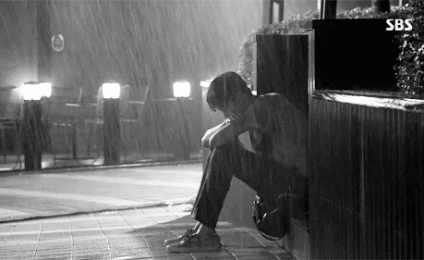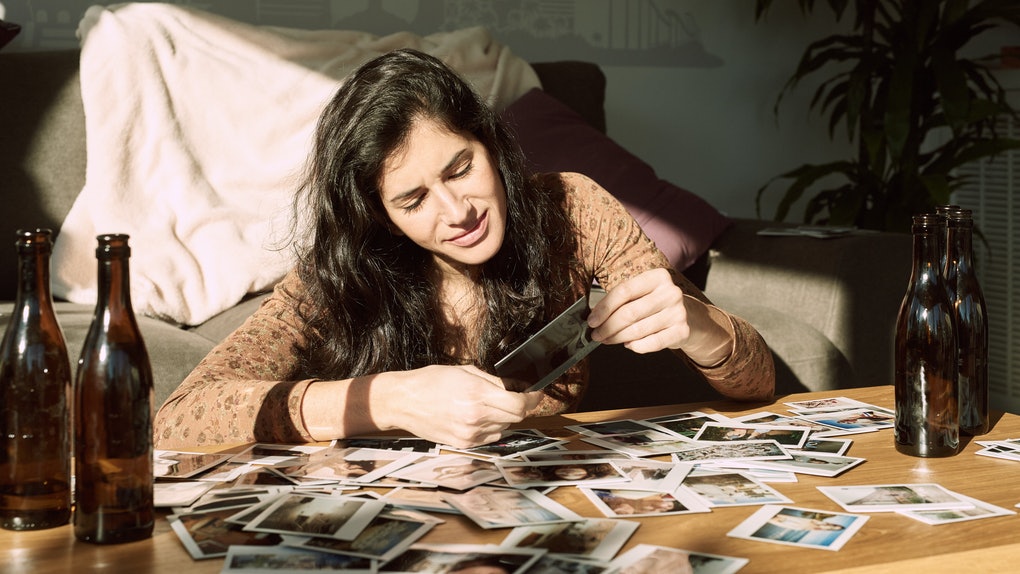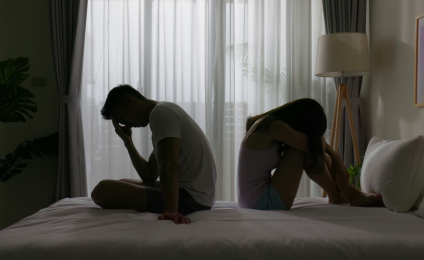Breaking up with someone can feel like you’ve been hit by a truck emotionally—confusing, overwhelming, and deeply unsettling. Regardless of who ended things or why it happened, the emotional aftermath is often messy and full of complicated feelings. Whether it was a short-term fling or a long-term commitment, separating from someone who meant something to you is no small thing.
And here's the truth: there's no “normal” way to feel after a break-up. You might feel devastated, or weirdly relieved. Angry one moment, numb the next. It's all part of the process, even if it doesn't make sense in the moment.
So while it’s absolutely okay to be in your feelings right now, it’s also crucial to start looking after yourself in the ways that matter. Little by little, day by day, there are steps you can take to get through the fog and rediscover your center. From spending time with people who uplift you to fueling your body properly and catching enough sleep—these seemingly basic things can work wonders.
The Emotional Wave After a Break-Up
Once the dust settles after a relationship ends, most people find themselves facing a whirlwind of emotions. Sadness, guilt, confusion, and anger often rise to the surface. And sometimes, strangely enough, even a feeling of relief will creep in—adding yet another layer of emotional complexity.
It’s not unusual to feel like your whole world has flipped upside down. You may notice that your appetite drops, motivation nosedives, or that even getting out of bed feels like a battle. These emotional lows can tempt you to try and “fast-forward” through the pain—but emotional healing isn’t a speed-run. It requires time, self-kindness, and often the support of others.
Some things to help you after a break up:
- Step back to breathe
Give yourself some breathing room. This doesn’t mean you have to erase your ex from your life forever—but it’s usually helpful to put a little digital and physical distance between you two right after things end. That means resisting the urge to check their stories or scroll through old chats. Even virtual space counts.
- Stay engaged with your life
Post-break-up weekends can feel endlessly long and empty. That’s why it helps to plan ahead—fill your schedule with things you enjoy or used to enjoy, even if they don’t feel the same just yet. Familiarity helps ground you when your emotional world feels unfamiliar.
- Reconnect with comfort
Do things that soothe you. Watch a comforting movie, put on music that lifts your mood, play a game, paint something messy, or take a walk in nature. Whatever gives you a moment’s peace, allow yourself that gift.
- Lean on your support system
It’s totally valid to want alone time—but don’t isolate for too long. Friends, family, or even a good conversation with someone who’s been through it can be an anchor. Fresh perspectives often come when you least expect them.
- Skip the substances
Using alcohol or drugs to numb emotional pain might feel good for a moment—but it often crashes back ten times harder. If you're really hurting, clear-headed self-care is the better path.
- Let time do its work
Grieving a relationship is not a race. You can’t force yourself to “get over it” on anyone else’s schedule. Give it the time it takes—your emotional well-being is worth the patience.
Words of Wisdom After a Break-Up: Advice You Need to Hear
Experts in emotional health often share common truths that help ease the intensity of a breakup. These aren't magic fixes, but reminders that you're not alone in this, and that healing is possible.
-
This isn’t permanent. The crushing feelings you have now won’t last forever. They’ll ebb and flow, good days and bad days will come—but gradually, it will get lighter.
-
Being the one to end it doesn’t always make it easier. Even if you were the one who said goodbye, it doesn’t mean you won’t feel grief, guilt, or confusion.
-
If you were the one who got left, know this: it doesn’t mean you’re broken or unworthy. Break-ups happen for all kinds of reasons—and most have little to do with your value as a person.
-
Staying in a relationship that’s draining is often worse than being alone. Your happiness and self-respect don’t depend on another person’s presence.
-
It's okay to be angry or devastated. Just make sure you express those emotions in ways that don’t harm yourself or others. Channel them safely.
-
Try not to obsess over appearances. Forget how it "looks" to others—this is your story, not theirs. Focus inward, not outward.
-
Take this as a learning opportunity. Even the hardest breakups can offer insight into what you want, what you need, and what you deserve going forward.
-
Healing doesn’t just mean surviving—it means growing. With the right support and time, you won’t just recover. You’ll evolve.
Ending a Relationship With Care
If you’re the one initiating the break-up, remember to lead with kindness. Ending a relationship respectfully says more about your character than any Instagram quote ever will.
Don’t ghost. Don’t be vague. Be direct, but be gentle. Explain why you feel it’s time to part ways, and understand that it might sting. That’s okay. It’s better to cause a moment of pain than to drag out weeks or months of dishonesty or resentment.
And please—if at all possible—end things in person. Text messages or DMs might seem easier, but they don’t offer the dignity of a real goodbye.
The Rollercoaster of Post-Break-Up Emotions
Whether you initiated the break-up or got blindsided by it, the emotional aftermath can hit like a storm. Heartache doesn’t discriminate. It hurts on both sides.
You may find yourself constantly thinking about them, revisiting old memories, or trying to “figure out” what went wrong. This is natural. Just don’t get stuck there. Let yourself feel what you need to feel—but also remind yourself that the story isn't over. It’s simply changed direction.
When Your Ex Moves On
Seeing or hearing that your ex has jumped into a new relationship can unleash a flood of jealousy, insecurity, or sadness. You might want to lash out or post something subtle but cutting. Resist that urge—it never helps.
Instead, remind yourself: their story is no longer your responsibility. Their new relationship doesn’t define your worth, and your healing doesn’t need to be compared to theirs. Focus on you.
If anger or jealousy becomes overwhelming, talk to someone. A friend, a sibling, or a counselor—just don’t bottle it up. Emotions that fester often turn toxic.
Thinking About Loving Again?
It’s normal to crave connection again, but don’t rush into the next thing just to fill the space. Take time to get reacquainted with yourself. Who are you now that the relationship is over? What have you learned? What kind of connection are you really looking for?
The best future relationship grows from a foundation of self-knowledge, not desperation.
And here's something worth repeating: you don’t need a partner to feel whole. Learning how to enjoy your own company is one of the most empowering things you can do.
Knowing When It’s Time to Reach Out for Help
For most people, time and support are enough to gradually heal from a breakup. But not always. If you’ve been struggling for more than two weeks and notice that sadness or numbness is interfering with your ability to function—it’s time to get help.
Don’t keep it all to yourself. Talk to someone you trust. If that feels too hard, consider reaching out to a counselor, therapist, or a support center like Headspace or a community wellness group.
Mental health is part of your healing, and you deserve to feel supported every step of the way. There’s no shame in asking for help—only strength in doing so.


























